The Innovative Female Entrepreneur Fighting Single-Use Plastic In India
When Ecoware founder Rhea Singhal couldn’t find alternative, sustainable solutions to India’s plastic problem, she created her own. Her brand disrupted an entire industry and is helping to change society’s habits for the better.
Every entrepreneur reaches a pivotal moment in their lives. One of the biggest is the decision to start a business despite knowing it will be challenging in a landscape full of unknowns.
When I founded Ecoware in 2009, it was back when there was far, far less awareness about the harmful effects of plastic. There were no plastic bans, educational campaigns, or incentives to change consumer behavior. However, plastic was already choking our ecosystems, washing up on our beaches and having a devastating effect on the health of humans and wildlife.
Every environmental campaigner or sustainable business knows that trying to tackle such a massive issue head-on is daunting. I hope my story shows that to be a disruptor, there are many tactics, moments of collaboration and change-making opportunities available to those that really want to succeed.
When I founded Ecoware in 2009, it was back when there was far, far less awareness about the harmful effects of plastic. There were no plastic bans, educational campaigns, or incentives to change consumer behavior. However, plastic was already choking our ecosystems, washing up on our beaches and having a devastating effect on the health of humans and wildlife.
Every environmental campaigner or sustainable business knows that trying to tackle such a massive issue head-on is daunting. I hope my story shows that to be a disruptor, there are many tactics, moments of collaboration and change-making opportunities available to those that really want to succeed.
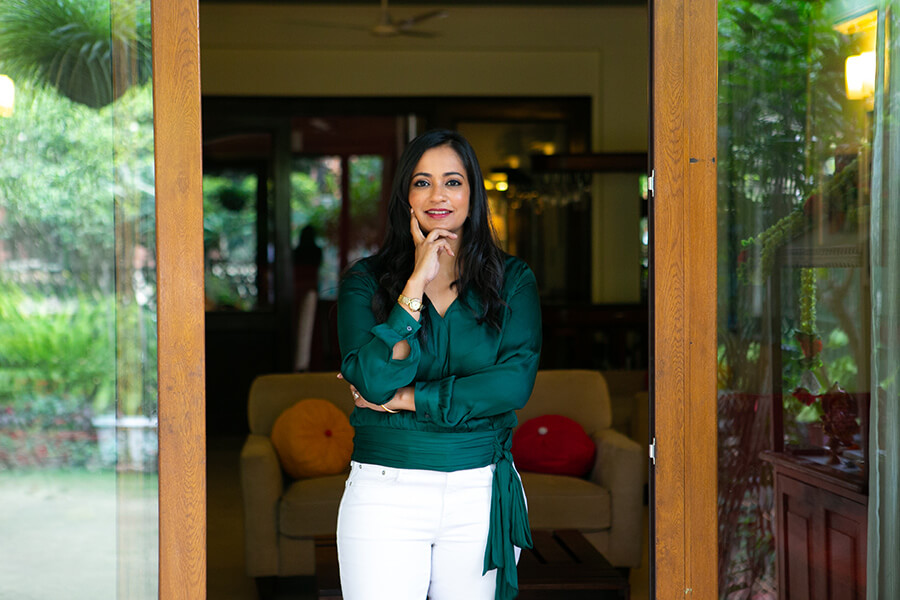
Here, I’ll share some tips and insights for any small businesses in the social impact and sustainability space. I truly believe that with the right resources and planning, we can all make a difference!
1. Remain open to changing your career direction. Entrepreneurs are made, not born
I had never intended to set up my own business and never imagined myself as an entrepreneur. Circumstances led me here when I re-located from the UK to India. Despite having climbed to the top of the ladder in my previous role in pharma, I frustratingly wasn’t given a look-in once I arrived in India . Fed up with being undervalued in a job market where I should have been a strong candidate, I finally received a surprising piece of advice. My father-in-law, a serial entrepreneur who had launched many businesses, suggested that I set something up for myself.
At just 27 years old, I had little to lose and thought – why not? And then as fate would have it, on the day I went to register my business I received a job offer from a global leader in the pharma industry. I briefly hesitated for just 30 seconds, but after that, my mind was made up. I was already so invested in my vision for Ecoware and my journey had already begun.
2. A challenging operating environment can make you stronger – and also help you stand out
The reason Ecoware didn’t have any competition when we were first established was because the odds were so stacked against companies like us. Cheap oil prices had led to a commoditized packaging industry that reinforced plastic production and usage across all sectors of society. We were all addicted to plastic.
1. Remain open to changing your career direction. Entrepreneurs are made, not born
I had never intended to set up my own business and never imagined myself as an entrepreneur. Circumstances led me here when I re-located from the UK to India. Despite having climbed to the top of the ladder in my previous role in pharma, I frustratingly wasn’t given a look-in once I arrived in India . Fed up with being undervalued in a job market where I should have been a strong candidate, I finally received a surprising piece of advice. My father-in-law, a serial entrepreneur who had launched many businesses, suggested that I set something up for myself.
At just 27 years old, I had little to lose and thought – why not? And then as fate would have it, on the day I went to register my business I received a job offer from a global leader in the pharma industry. I briefly hesitated for just 30 seconds, but after that, my mind was made up. I was already so invested in my vision for Ecoware and my journey had already begun.
2. A challenging operating environment can make you stronger – and also help you stand out
The reason Ecoware didn’t have any competition when we were first established was because the odds were so stacked against companies like us. Cheap oil prices had led to a commoditized packaging industry that reinforced plastic production and usage across all sectors of society. We were all addicted to plastic.
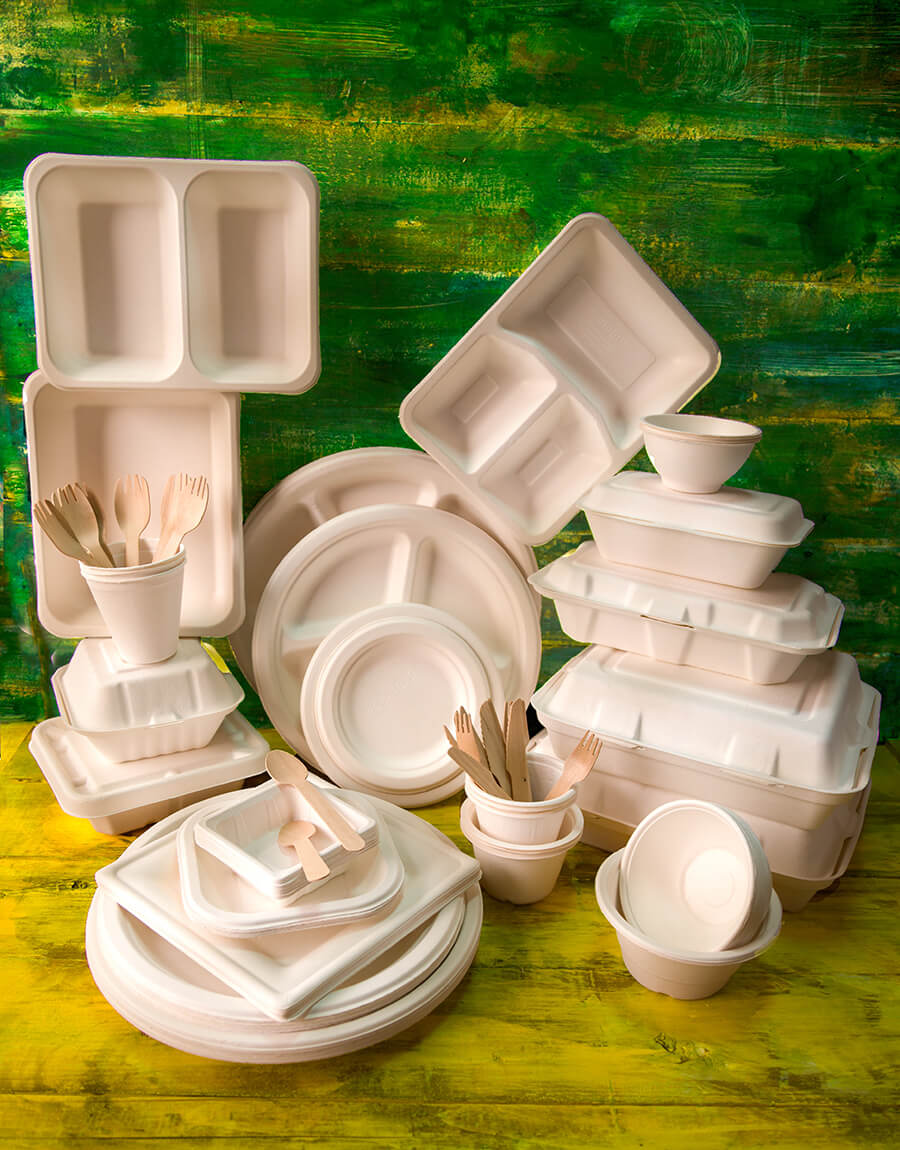
Our concept - creating a natural and healthy alternative to single-use plastics – simply didn’t exist. The barriers to success were endless: how do you influence a change in mindset for 1.8 billion people across so many different backgrounds? In terms of resources, there were no existing guidelines on industry standards. We had to navigate everything ourselves and learn as we went.
Converting common crop waste into sustainable packaging that is 100% natural, compostable, and biodegradable was revolutionary at the time and took a huge amount of research and investment. I’m delighted to see how popular it has become across India and Asia Pacific.
3. Change doesn’t happen overnight – it’s a process
I look at where we are now – 12 sales partners globally, 23 distributors in India and over 500 point-of-sales shops – and I have to remind myself that growth is a gradual process. It takes education, sustained over time, to create lifelong behavioral changes. We had to influence and build awareness amongst so many different stakeholders: manufacturers, traders, and consumers as well as media and policymakers.
Sustainable products also need to be backed by the government if they are going to achieve mass adoption. For example, we lobbied constantly, day and night, for our product to be exempt from GST (Good and Service Tax). But when a breakthrough happens, it really opens the doors to opportunity. For us, that moment was when we inked a deal to partner with the Indian Railways and provide sustainable packaging for 1.1 million meals a day. That was a huge win for them and their passengers as well as us.
Converting common crop waste into sustainable packaging that is 100% natural, compostable, and biodegradable was revolutionary at the time and took a huge amount of research and investment. I’m delighted to see how popular it has become across India and Asia Pacific.
3. Change doesn’t happen overnight – it’s a process
I look at where we are now – 12 sales partners globally, 23 distributors in India and over 500 point-of-sales shops – and I have to remind myself that growth is a gradual process. It takes education, sustained over time, to create lifelong behavioral changes. We had to influence and build awareness amongst so many different stakeholders: manufacturers, traders, and consumers as well as media and policymakers.
Sustainable products also need to be backed by the government if they are going to achieve mass adoption. For example, we lobbied constantly, day and night, for our product to be exempt from GST (Good and Service Tax). But when a breakthrough happens, it really opens the doors to opportunity. For us, that moment was when we inked a deal to partner with the Indian Railways and provide sustainable packaging for 1.1 million meals a day. That was a huge win for them and their passengers as well as us.
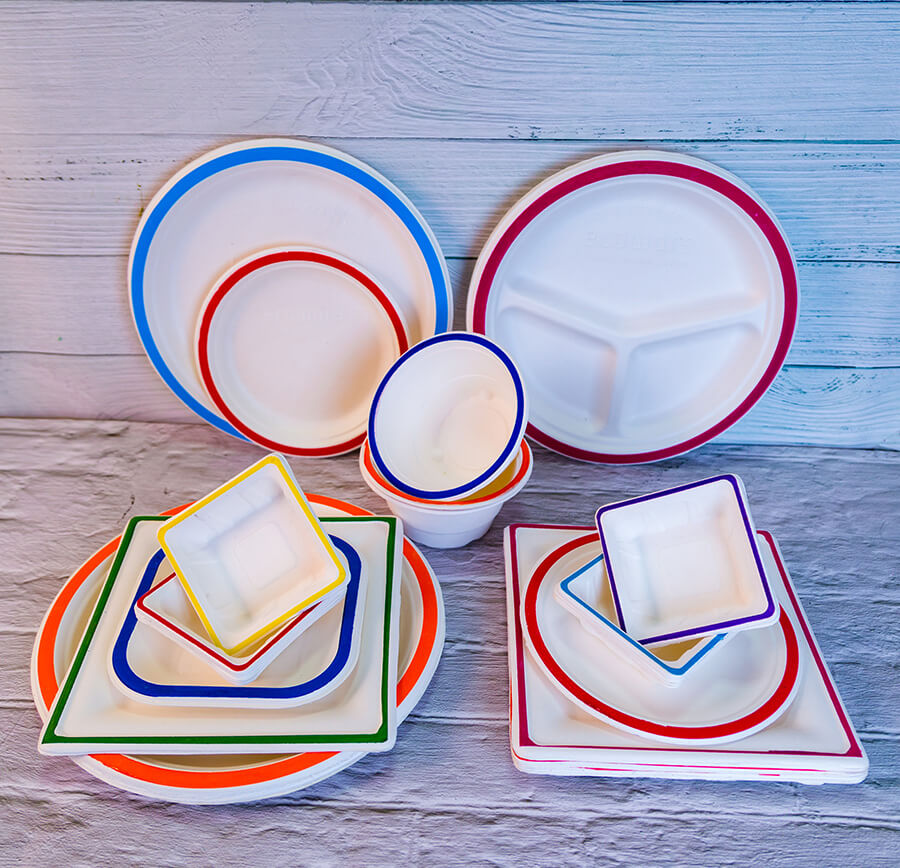
4. Start local but think global – and keep searching for opportunities to grow
Like all entrepreneurs, I wanted to build a truly authentic brand of choice. And I wanted that brand of choice to achieve the greatest possible reach. India is a huge market, but for environmental impact to be possible, it must be global. That’s why we invested in creating and meeting not just Indian, but global manufacturing standards for all our products. Thinking ahead and beyond a domestic audience helped us enter new markets, and we’re now operating in 16 countries worldwide.
We’ve also focused on being multi-industry. We started in the Food and Beverage space, but we’re trying to explore innovation across other industries and tap into the huge potential of cross-border e-commerce. It’s important to remain agile and not limit yourself to one area of impact.
5. Sustainability needs to be at the core of all decision-making, not an afterthought
The growing momentum and urgency behind ESG for companies everywhere has demonstrated that sustainability needs to drive every consideration across the economy, people and planet. This will benefit all stakeholders and add more value to the business going forward. To ensure that you are purposeful and your work creates impact, sustainability must be the bedrock.
As a business that has been recognized by the World Economic Forum for deriving 100% of our revenue from a circular economy, we also understand how important it is to be endorsed by external organizations that carry weight and influence. Having access to a powerful platform can further drive change.
And finally, my advice for any entrepreneur trying to set up a sustainable business today?
Measure your impact. Set clear parameters: aligning to SDGs (UN Sustainable Development Goals) is also important, as they are globally recognized and measurable. It’s so much easier to take pride in what you are doing when you can reflect on tangible change.
I’ve been on this journey for well over a decade. Sustainability still isn’t a sexy space. But there is more awareness, conversation and action than ever before. After years of perseverance from small businesses, NGOs and the sector at large, sustainability is finally on mainstream agendas. So to all entrepreneurs hoping to drive environmental change through innovative ideas: hang in there and keep going! Count all your small wins. Together, we can save our planet and our future.
Like all entrepreneurs, I wanted to build a truly authentic brand of choice. And I wanted that brand of choice to achieve the greatest possible reach. India is a huge market, but for environmental impact to be possible, it must be global. That’s why we invested in creating and meeting not just Indian, but global manufacturing standards for all our products. Thinking ahead and beyond a domestic audience helped us enter new markets, and we’re now operating in 16 countries worldwide.
We’ve also focused on being multi-industry. We started in the Food and Beverage space, but we’re trying to explore innovation across other industries and tap into the huge potential of cross-border e-commerce. It’s important to remain agile and not limit yourself to one area of impact.
5. Sustainability needs to be at the core of all decision-making, not an afterthought
The growing momentum and urgency behind ESG for companies everywhere has demonstrated that sustainability needs to drive every consideration across the economy, people and planet. This will benefit all stakeholders and add more value to the business going forward. To ensure that you are purposeful and your work creates impact, sustainability must be the bedrock.
As a business that has been recognized by the World Economic Forum for deriving 100% of our revenue from a circular economy, we also understand how important it is to be endorsed by external organizations that carry weight and influence. Having access to a powerful platform can further drive change.
And finally, my advice for any entrepreneur trying to set up a sustainable business today?
Measure your impact. Set clear parameters: aligning to SDGs (UN Sustainable Development Goals) is also important, as they are globally recognized and measurable. It’s so much easier to take pride in what you are doing when you can reflect on tangible change.
I’ve been on this journey for well over a decade. Sustainability still isn’t a sexy space. But there is more awareness, conversation and action than ever before. After years of perseverance from small businesses, NGOs and the sector at large, sustainability is finally on mainstream agendas. So to all entrepreneurs hoping to drive environmental change through innovative ideas: hang in there and keep going! Count all your small wins. Together, we can save our planet and our future.
***
For more news and insights from Ecoware, check out their website.
For more sustainability and ESG stories from FedEx, visit our Business Insights page.
For more sustainability and ESG stories from FedEx, visit our Business Insights page.







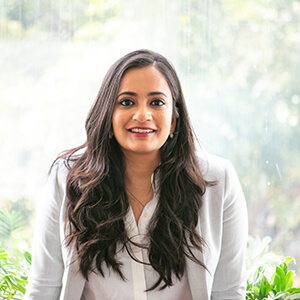
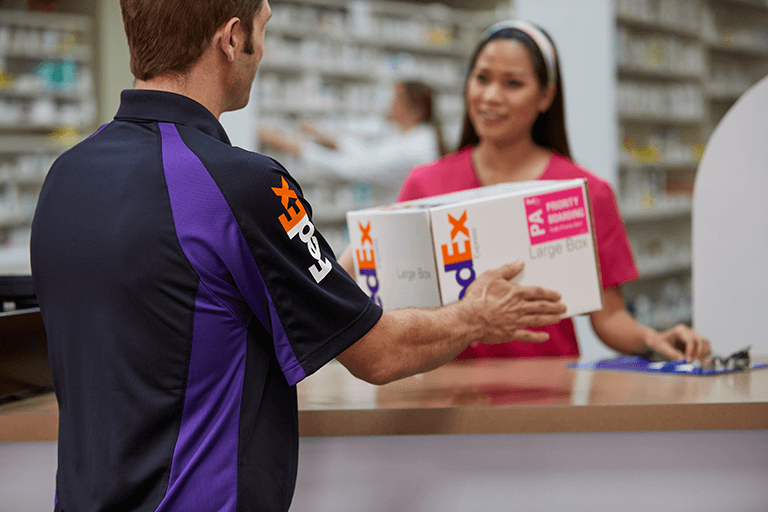
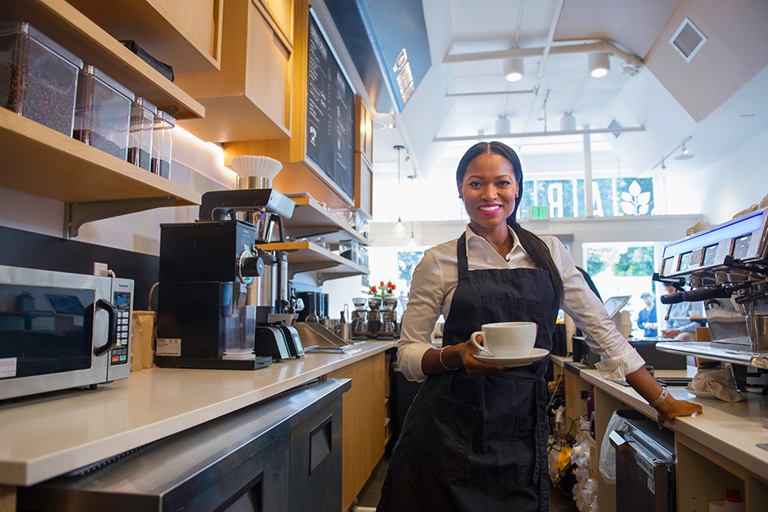
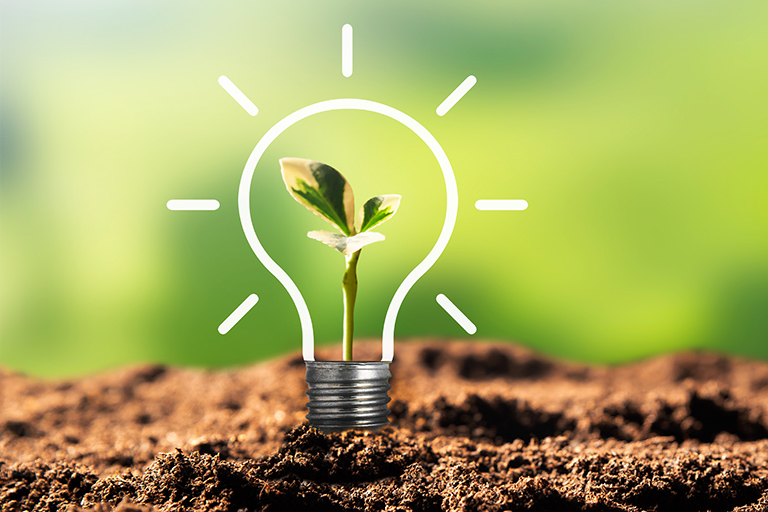
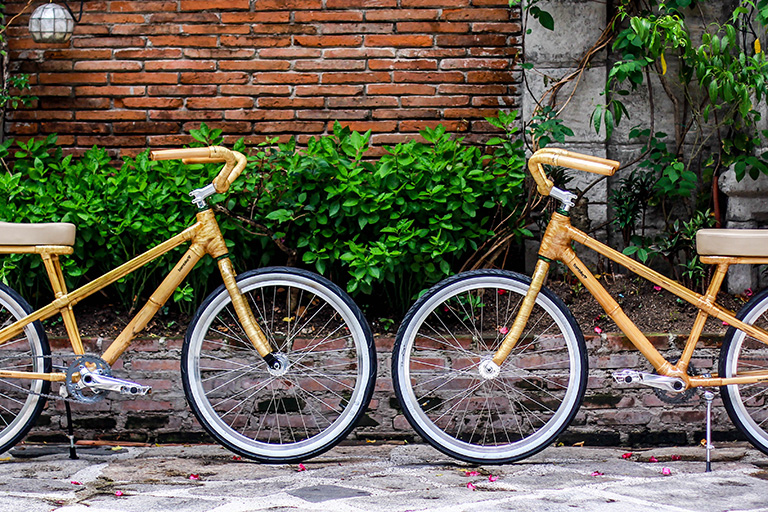






 The Latest
The Latest